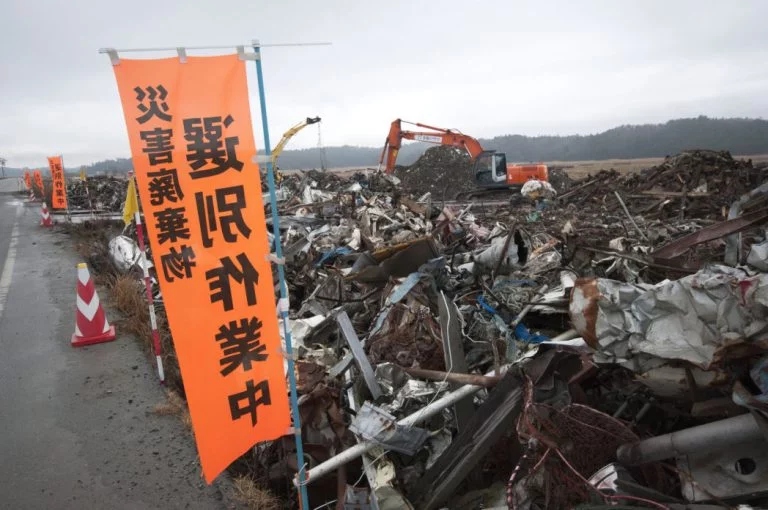The 2011 earthquake led to three meltdowns at the Fukushima Daiichi nuclear plant, last week forced Eon and RWE into a shakeup of the German energy industry.
Involving asset and share swaps, Eon will be reshaped to focus on supplying energy to customers and managing grids and ditch most involvement with renewables.
It also said it expected to reduce its workforce by about 5,000 people as a result of the deal with RWE.
RWE will concentrate on generation and energy trading, complementing its coal and gas plants with wind farms that are projected to make it Europe’s third-largest renewable producer.
The firms expect the transaction, which is subject to regulatory approval, to close by the end of next year and, until then, Eon and RWE will remain separate utilities and competitors.
Two years ago both firms split their renewable and fossil-fuel energy subsidiaries as part of a plan by German Chancellor Angela Merkel to phase out nuclear power by 2022. Energiewende is Merkel’s speeded-up transition to renewables after the Fukushima disaster.
Peter Atherton of Cornwall Insight said the German deal showed the traditional model of a vertically integrated energy giant, that generates energy, transports and sells it, was becoming outdated.
Italy’s Enel and Iberdrola in Spain are still pursuing a do-everything model.
RWE said scale was the only way to compete in European auctions for renewable energy subsidies. RWE CEO Rolf Martin Schmitz said: “Critical mass is the key in renewable energy. Before this transaction, neither RWE nor Eon was in this position.
“Renewable and conventional energy generation are two sides of the same coin when it comes to the transformation of the energy world.”
After the deal, RWE has an estimated 8GW of renewable capacity and another 5GW in development, which would account for a projected 60 per cent of its earnings by 2020.
“Renewables will evolve from a regulated business to market competition,” Schmitz said, adding that subsidies would not last for ever.
Eon has issued its annual results for last year, which saw the renewables subsidiary generate more than €1.6 billion in revenue last year, up 18 per cent from €1.36 billion in 2016.
Offshore wind revenue grew 8 per cent to €677 million last year, compared with €629 million in 2016, while onshore wind and solar rose 27 per cent to €927 million from €728 million in 2016.
Eon is concentrating on supplying people with energy and services, and is expected to go from 31 million customers to 50 million after the deal. It will also have a much greater proportion of its earnings, 80 per cent rather than 65 per cent, coming from the regulated, lower-return but lower-risk energy networks.
Fukushima in 2014. Picture credit: Flickr
Did you like it? 4.6/5 (25)







